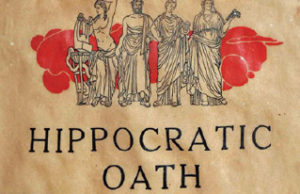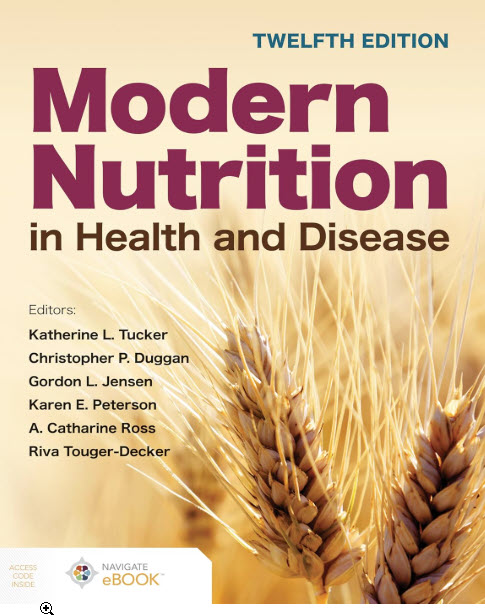Do You Want to be a Doctor? 0
 Do you have a student or are you a student with aspirations to be a Doctor of Medicine or pursue any healthcare profession? With all the talk about healthcare issues and challenges, our basic western system of Allopathic medicine continues to frustrate both the patient and caregiver. My strong suggestion to aspiring doctors and nurses is to read this book and/or this one and watch this in its entirety before entering a field that is getting more purblind in understanding true wellness and based on scientific methods that have proven to be inadequate when it comes to curing…much less preventing disease.
Do you have a student or are you a student with aspirations to be a Doctor of Medicine or pursue any healthcare profession? With all the talk about healthcare issues and challenges, our basic western system of Allopathic medicine continues to frustrate both the patient and caregiver. My strong suggestion to aspiring doctors and nurses is to read this book and/or this one and watch this in its entirety before entering a field that is getting more purblind in understanding true wellness and based on scientific methods that have proven to be inadequate when it comes to curing…much less preventing disease.
My philosophy of placing more emphasis on diet and nutrition in the prevention of disease than the treatment of symptoms and strengthening the body’s natural immune system is making more sense as the nation as a whole becomes sicker physically, mentally, and spiritually. Bastyr University and other  Naturopathic colleges teach that approach. It is all about the ounce of prevention worth more than a pound of cure. Mainly when the cure is designed to manage the symptoms with questionable drugs and not address the real cause of the disease. Recently, intelligent whistleblowers have been speaking out against the other big-money maker product, vaccines! It is, particularly now, a significant risk as more M.D.s are realizing how damaging vaccines can be. Nowadays, it is essential that parents, particularly mothers, research the reasons for any vaccines and how they are determined to be safe before allowing their children to be vaccinated.
Naturopathic colleges teach that approach. It is all about the ounce of prevention worth more than a pound of cure. Mainly when the cure is designed to manage the symptoms with questionable drugs and not address the real cause of the disease. Recently, intelligent whistleblowers have been speaking out against the other big-money maker product, vaccines! It is, particularly now, a significant risk as more M.D.s are realizing how damaging vaccines can be. Nowadays, it is essential that parents, particularly mothers, research the reasons for any vaccines and how they are determined to be safe before allowing their children to be vaccinated.
Not convinced? Here is a refreshing, well-researched article by a West Point graduate and former army officer. Now, with Codex Alimentarius, Big Pharma is trying to make it illegal for a physician to practice proven alternative therapies to heal the body and/or prevent the disease in the first place. Call me if you wish to explore proven solutions to achieve optimal health for your family. It’s not “rocket science”. Eric Goodhart
Future Docs Are Confused, Too
Struggling to understand the national debate over health care? You’re not alone — your future doctor may be baffled, too.
A study published in the September issue of Academic Medicine found that nearly half of all medical students believe they have been inadequately educated about the “practice of medicine” — especially related to medical economics.
Our patients expect us to understand the system, said Matthew M. Davis, one of the researchers and an associate professor of pediatrics and internal medicine in the Child Health Evaluation and Research Unit at the University of Michigan’s medical school. If we don’t, that can result in poor patient care. And if we don’t expect doctors to understand the healthcare system, who will?
The study, by Davis and two colleagues at Michigan, examined tens of thousands of survey responses from medical students about the extent and perceived quality of their training in an array of curricular areas, including clinical care and decision-making and the practice of medicine—the latter including health care systems, managed care, and practice management, among other areas.
The vast majority of respondents (more than 80 percent across the board during the period, which ran from 2003 to 2007) reported receiving “appropriate” levels of training in the clinical aspects of their education, including such things as diagnosis and management of disease, ethical decision-making, pharmacology, and care of patients. However, fewer than 50 percent of medical students believed they had received appropriate training in areas related to the profession they were prepping to enter. (Because it is based on a survey, all of the data relates to future doctors’ impressions of their education, not their actual aptitudes.)
The picture looked a little different when the researchers compared the national sample of students with responses from two individual medical schools. One had a “higher intensity” curriculum regarding the medical profession, and another provided less instruction on that set of skills and knowledge.
Students in the former program were significantly likelier than those in the latter to report satisfaction with their level of training in the practice of medicine. They were also three times likelier to report appropriate training in medical economics and health care systems.
“The high-intensity curriculum in health care systems — which differed from the lower intensity curriculum both in structure and in-class time devoted to the subject — seems to have translated into a greater sense of appropriate instruction among graduating students,” the authors wrote.
It did not appear that the additional attention paid to that subject matter distracted students from the more clinical aspects of their medical training: They reported comparable levels of satisfaction with their perceived instruction in clinical areas to their peers.
“This means that a higher intensity curriculum in health care systems could hold the potential to overcome medical students’ perceptions of inadequate training in the practice of medicine and health care systems,” without impairing the hugely important clinical aspects of their training, the authors say.
Doug Lederman
Inside Higher Education
